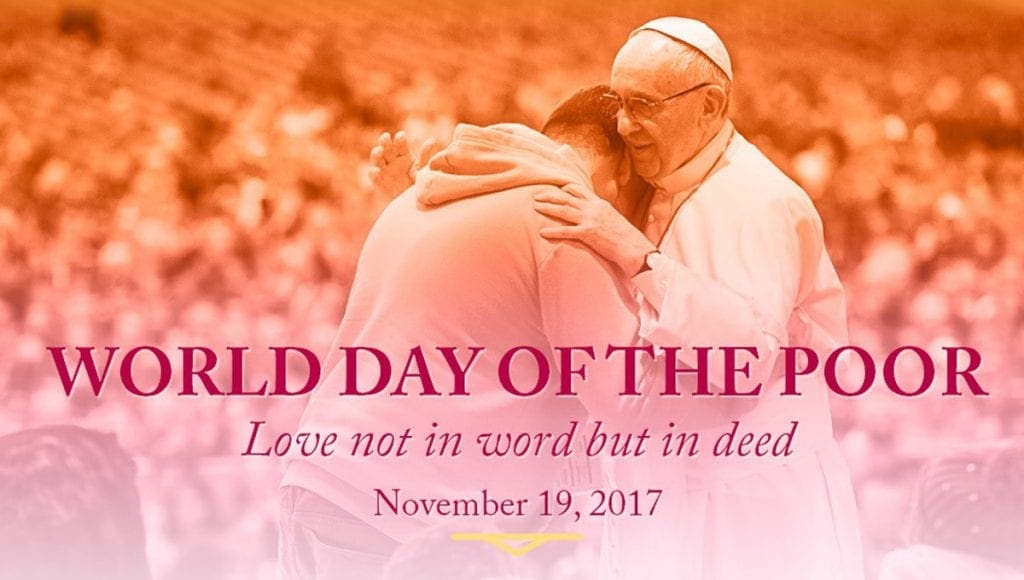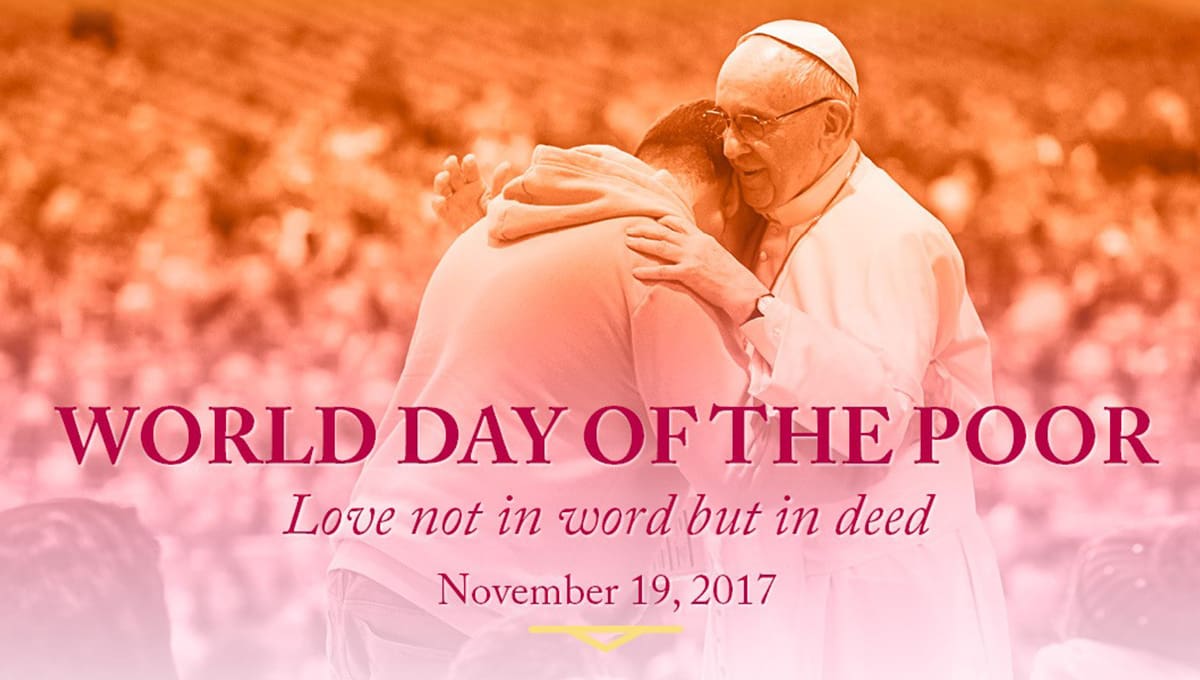Witness: Examining Our Own Attitudes About the Poor

On the First World Day of the Poor
Examining Our Own Attitudes About the Poor
A Witness Perspective
“Little children, let us not love in word or speech, but in deed and in truth” (1 Jn 3:18).
These words of the Apostle John voice an imperative that no Christian may disregard.” [1]
With this opening, Pope Francis established November 19, the 33rd Sunday in Ordinary Time, as the first World Day of the Poor. And, while I’ve added the emphasis in the statement, the entire message compels us to action.
This foundational message from the Holy Father comes at a time when people living on the periphery of our society are increasingly being blamed for causing their own condition.

A recent study by the Kaiser Foundation and the Washington Post reported that 46 percent of Christians surveyed said that poverty stems from a lack of effort (see summary chart above). As if that wasn’t bad enough, 50 percent of Catholics blamed lack of effort while 45 percent blamed circumstances beyond their control. In contrast, over 65 percent of atheists said that circumstances were to blame. Just 31 percent thought it was a lack of effort.
Let that sink in for a minute! People of faith seemed to be less empathetic than atheists. That shocked me.
Arthur Brooks and john a. powell are authors on opposite ends of the political spectrum. They are both members of the US Partnership on Mobility from Poverty. Last month, they wrote an article titled, America Can’t Fix Poverty Until It Stops Hating Poor People, A bipartisan plea to stop “othering” those living on the economic margins.[2] In it, they cite many examples where “Research consistently finds that Americans exhibit a disturbing level of antipathy towards those on the economic margins.”
We know from experience that simple contact with those in need doesn’t necessarily connect us with a person or family. Vincentians know, however, that we must gain empathy before we can express compassion. Otherwise we are not doing charity out of love. We are doing it out of obligation.
Here, Pope Francis has a reminder, in his message for the World Day of the Poor:
“We may think of the poor simply as the beneficiaries of our occasional volunteer work, or of impromptu acts of generosity that appease our conscience. However good and useful such acts may be for making us sensitive to people’s needs and the injustices that are often their cause, they ought to lead to a true encounter with the poor and a sharing that becomes a way of life.
If we truly wish to encounter Christ, we have to touch his body in the suffering bodies of the poor, as a response to the sacramental communion bestowed in the Eucharist.”
So, the question becomes, how can we use the encounters we have with our neighbors in need to help raise empathy among our fellow parishioners? Sometimes, facts can help clarify misconceptions. For many people, they may not know the root cause problems we see all the time, such as:
- Half of US renters paid more than 30% of their income on housing in 2015 (Harvard University study). General recommendations are that a person/family not spend more than 30% of their income on housing;
- In NY City, median household incomes rose 6.6% from 2005 to 2015. Median gross rents rose 18.3% during the same time (Atlanta Journal Constitution, Brianna McGurran, 10/1/17);[3]
- Research[4] shows that the primary cause of homelessness, particularly among families, is lack of affordable housing. Surveys of homeless families have identified the following major immediate, triggering causes of homelessness: eviction; doubled-up or severely overcrowded housing; domestic violence; job loss; and hazardous housing conditions.
- For one adult and two children, the 2017 federal poverty measure is $2,180 per month. The 2017 Self-Sufficiency Standard, the income standard adopted by The Society, states that $4,192 is needed to be considered self-sufficient in Catawba County, NC.
Facts like these can help people realize that many people are not poor because they are lazy. There are many contributors to a family’s financial situation that are beyond control. As poverty moves to more and more suburban locations, people may need you to remind them that the “other” may be living next door.
Each one of us must take this seriously. It’s not just up to your local Voice of the Poor representative to be a voice of the poor. Our faith calls each of us to do that.
As the Pope instructs us:
“Blessed, therefore, are the open hands that embrace the poor and help them: they are hands that bring hope. Blessed are the hands that reach beyond every barrier of culture, religion and nationality, and pour the balm of consolation over the wounds of humanity. Blessed are the open hands that ask nothing in exchange, with no “ifs” or “buts” or “maybes”: they are hands that call down God’s blessing upon their brothers and sisters.
The poor are not a problem: they are a resource from which to draw as we strive to accept and practise in our lives the essence of the Gospel.”
This Witness Perspective was written by Jack Murphy. Jack can be contacted at jack.murphy@att.net
[1] https://w2.vatican.va/content/francesco/en/messages/poveri/documents/papa-francesco_20170613_messaggio-i-giornatamondiale-poveri-2017.html
[2] https://www.citylab.com/equity/2017/10/america-cant-fix-poverty-until-it-stops-hating-poor-people/542397/
[3] https://www.google.com/url?sa=t&rct=j&q=&esrc=s&source=web&cd=2&cad=rja&uact=8&ved=0ahUKEwiyh7SrtL7XAhWH5YMKHY-SAocQFggrMAE&url=https%3A%2F%2Fwww.pressreader.com%2Fusa%2Fthe-atlanta-journal-constitution%2F20171001%2F283502206211924&usg=AOvVaw0h-FBpI_B-sWrrpZvGB4hz
[4] http://www.coalitionforthehomeless.org/basic-facts-about-homelessness-new-york-city/
Tags: World Day of the Poor







0 Comments